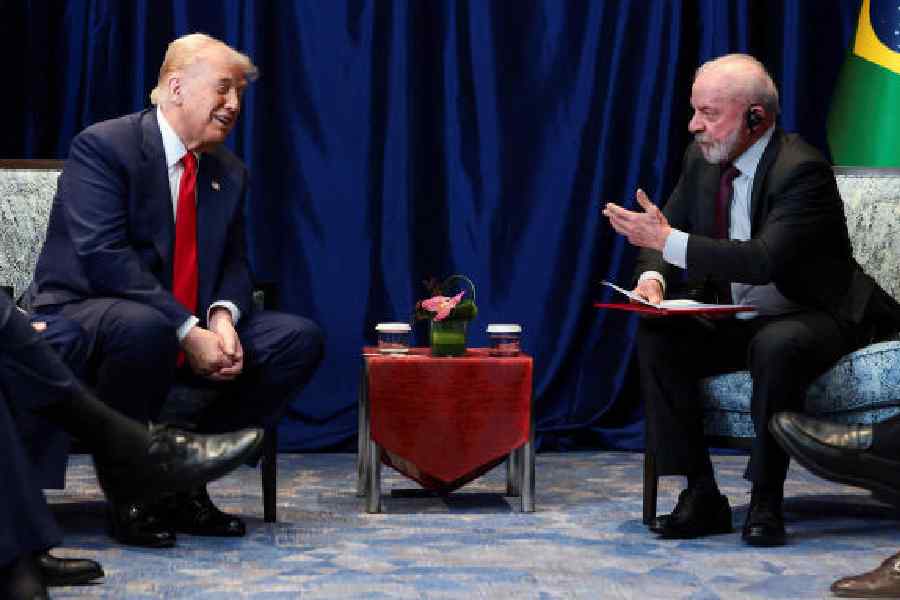From the minute Donald Trump slapped tariffs on Brazil, President Luiz Inacio Lula da Silva bet the US leader was going all-in on a weak hand. The wager paid off earlier this week, when Trump limped away from the battle.
In an executive order, Trump exempted dozens of Brazilian food products, including coffee and beef, from the 40 per cent increased tariffs he imposed in an ill-fated attempt to help former President Jair Bolsonaro dodge a coup attempt trial.
Together with prior exemptions, the move will leave many of the nation’s major exports free from heightened US duties, a victory for an agricultural powerhouse that ranks as the world’s largest beef and coffee producer and counts the US as its second-largest trade partner.
It’s an even bigger win for Lula, the 80-year-old leftist who staked his once-struggling presidency on the fight with Trump and may have just provided a model for how similarly situated nations, such as India, should approach the combative American leader.
India has charted a more cautious course. New Delhi is still negotiating a broader trade agreement with Washington even as roughly two-thirds of its merchandise exports face a cumulative 50 per cent tariff — comprising reciprocal duties and additional penalties tied to its purchases of Russian oil.
Yet Prime Minister Narendra Modi’s government has notably avoided rushing to placate Trump in pursuit of a quick reprieve, instead signalling that India will engage on its own terms while absorbing the near-term commercial costs.
The contrast underscores the widening divergence in how major emerging markets are responding to a more protectionist United States — and the political calculations shaping their respective strategies.
About 22 per cent of Brazilian exports to the US are now facing tariffs, down from 36 per cent, vice president Geraldo Alckmin said. Trump is notoriously unpredictable and doesn’t like to lose and broader trade talks are ongoing. But for now, at least, Lula appears to have triumphed on Brazil’s most important products without making any major concessions, a feat few others have managed.
In contrast, India has offered at least one concession: dialling down Russian oil imports. The economic sanctions imposed by the US treasury department on two of Russia’s biggest oil producers and suppliers came at a time when the Modi government was looking for a way to resolve the high tariff issue.
Apart from Russia-owned Nayara, the other Indian refiners are tapering off Russian oil purchases, which may prompt Trump to claim victory and take the punitive 25 per cent tariff off the table. However, India may not rush into a deal just yet.
“For now, we have avoided the worst impact of the 50 per cent US tariffs. If needed, we are ready to wait,” a senior government official told Reuters earlier this week. A strong domestic economy and smaller than expected hit to exports appear to have emboldened New Delhi to wait for a good trade deal, which can put India’s tariff to 15 per cent, at par or even less than its Asian peers.











